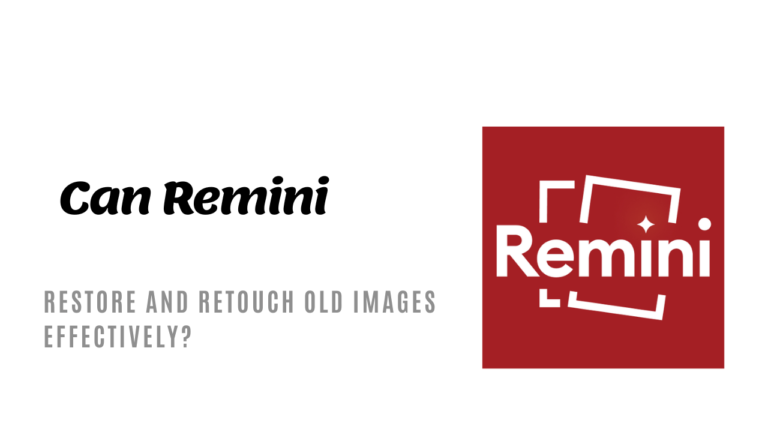What are the Advanced Editing Capabilities of Remini Versus Traditional Photo Editors?

Photo editing has evolved from simple tweaks to advanced technologies that enhance images like never before. Remini, an app powered by artificial intelligence, stands out by transforming old or low-quality photos into clear, high-definition images.
This article compares the cutting-edge capabilities of Remini with those of traditional photo editors, exploring how each meets different photo editing needs.
Overview of Remini
Remini is an app that stands out in the world of photo editing due to its focus on enhancing image quality using advanced artificial intelligence technologies. Launched in 2019, Remini specializes in restoring old, blurred, or low-resolution images to high-definition clarity.
One of its key features is the ability to enhance facial details in photographs, making it particularly popular among users looking to revive old family photos or improve portraits taken under less than ideal conditions. The app’s intuitive interface allows users to apply complex restoration algorithms with just a few taps, making advanced photo editing accessible to everyone without the need for technical know-how.
Overview of Traditional Photo Editors
Traditional photo editors like Adobe Photoshop, GIMP, and Corel PaintShop Pro have been staples in digital imagery for decades. These platforms offer a wide range of tools that allow for detailed manipulation, from color correction and layering to advanced effects like cloning and masking.
Traditional editors provide a high degree of control over each adjustment, making them the go-to choice for professional photographers and graphic designers. However, this level of detail requires a steep learning curve and is often time-consuming, demanding a good understanding of both the software and fundamental principles of photo editing.
Comparative Analysis
Ease of Use: Remini offers a straightforward, user-friendly interface that simplifies photo enhancements. Users can improve their photos with minimal effort, which contrasts sharply with traditional photo editors that often involve complex menus and numerous steps.
Technology: The core of Remini’s capabilities lies in its AI-driven technology, which automatically analyzes and enhances photos. In contrast, traditional photo editors rely more on manual adjustments and user input, offering precision at the cost of convenience and speed.
Quality of Output: Remini excels in delivering quick enhancements, particularly for facial details in portraits. Traditional editors, while more time-consuming, allow for a broader range of adjustments that can cater to high-quality professional outputs, especially in varied contexts beyond simple enhancements.
Special Features: Remini’s AI specializes in recognizing and improving human faces, an area where it significantly outshines many traditional tools. On the other hand, traditional photo editors offer features like batch editing, custom brushes, and third-party plugins that are invaluable for detailed graphic projects.
Use Cases
Remini is ideal for non-professionals who want quick fixes for family albums, casual snapshots, or social media posts. It’s particularly useful for enhancing old photographs where the original quality might be lacking.
Traditional photo editors, however, are better suited for professional photographers and designers who need detailed edits and control over their images for projects that require a high level of customization and precision.
Conclusion
Choosing between Remini and traditional photo editors depends largely on your specific needs. If you require quick, user-friendly enhancements, especially for personal photos, Remini offers a powerful, AI-driven solution.
For professional projects requiring detailed manipulation, traditional photo editors remain the best choice. Understanding these tools’ strengths will help you select the right software for your photo editing needs.






